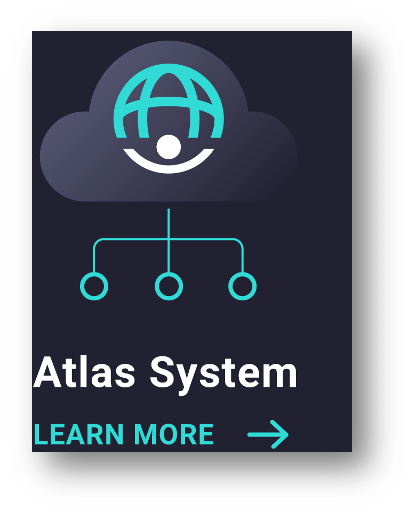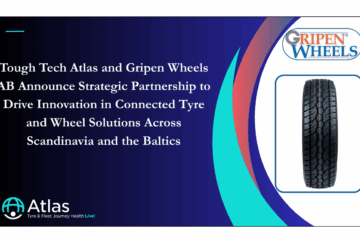
Fleet decarbonisation and TPMS share a vital connection, offering transformative potential for sustainable practices in fleets and heavy-duty machines.
Gary Brierley outlines the profound impact that ATLAS connected TPMS can have on fleet decarbonisation. He demonstrates how real-time monitoring and data analytics contribute to significant carbon footprint reduction, making it a cornerstone in the pursuit of a greener, more efficient future for transportation industries.
Fleet Decarbonisation and TPMS
Discover the greener side of innovation and manufacturing with ATLAS TPMS! Uncover the impact of “Small steps on the road to decarbonisation,” delve into “The Significance of Tyre Pressure,” and explore the “Top 10 reasons why on & off-road fleet operators choose to recondition their ATLAS TPMS technology after 6 years in service.” Going green isn’t just a buzzword around here – it’s a smart move!
Did you know that if you brush your teeth twice a day and turn the tap off while brushing, you could save up to 24 litres of fresh clean water a day? That’s 8,760 litres per year. This is just one example of the importance of fostering behavioural changes and encouraging more incremental ‘small steps’ that could help in the achievement of global decarbonisation in transport and industry.

The global pursuit of decarbonisation has gained significant momentum as the world recognises the urgent need to address climate change and reduce greenhouse gas emissions. Transport and industry consistently take centre stage in the discourse on fleet decarbonisation, shouldering the weight of responsibility and igniting crucial conversations about our planet’s sustainable future.
While large-scale initiatives and political policy changes play a crucial role in this effort, the ‘Small Steps’ approach has emerged as an equally vital strategy. In this context, the implementation of the Advanced Connected Tyre Pressure Monitoring Systems, ATLAS TPMS, represents a remarkable example of how seemingly minor innovations can contribute to substantial reductions in carbon emissions and foster a greener future.
Fleet Decarbonisation and TPMS : Deflating Carbon Emissions

Tyres are an often overlooked but a substantial factor in a vehicle’s carbon footprint. Incorrect tyre pressure can lead to increased rolling resistance, demanding more fuel to maintain a given speed. According to the U.S. Department of Energy, under inflated tyres can reduce fuel efficiency by up to 3%, resulting in millions of tons of unnecessary CO2 emissions annually.
ATLAS TPMS: Empowering Operators for Change.
ATLAS TPMS technology addresses this issue directly by continuously monitoring tyre pressure 24/7 and alerting drivers when adjustments are needed, even when the vehicle or machine is switched off. This innovation is a prime example of the ‘Small Steps’ approach to decarbonisation. By empowering operators of vehicles and machines to take proactive measures to optimise their tyre performance, ATLAS TPMS contributes to both fuel savings and emission reductions.
Benefits of ATLAS TPMS: Paving the Way to a Greener Future:
Fleet Decarbonisation: Conclusion – Small Steps, Big Wins
The journey towards fleet decarbonisation is complex and multifaceted, requiring collaboration across sectors and the implementation of various strategies. While grand initiatives and policy changes are necessary, the power of small, tangible steps cannot be underestimated. The adoption of ATLAS TPMS is a prime example of how innovative solutions can create a domino effect of positive change. By empowering individuals and operators to optimise their vehicle and machine fuel efficiency and as a result achieve a reduction in emissions, it’s a win-win for all. ATLAS TPMS is already playing a significant role in the ‘Small Steps’ approach to decarbonisation. As connected technology continues to evolve, businesses embracing such solutions will be paramount in shaping a more sustainable and greener future for generations to come.
Top 10 Reasons Why Fleet Operators Choose to Recondition ATLAS TPMS Technology
As the industrial world collectively strives towards decarbonisation, the impact of every small yet meaningful step becomes imperative. ATLAS technology provides a tangible approach—recycling by re-conditioning the ATLAS TPMS (Tyre Pressure Monitoring System) technology hardware. This initiative not only aligns with our commitment to environmental sustainability but also brings forth a range of benefits for the ATLAS TPMS user.

Over the course of almost seven years, ATLAS TPMS has consistently demonstrated its exceptional performance in diverse and demanding settings, spanning both on and off-road terrains globally. While such extensive usage typically prompts fleet operators to contemplate replacements, the enduring reliability of ATLAS TPMS distinguishes itself by offering a viable alternative—reconditioning. Here are the top 10 reasons why ATLAS users opt for the reconditioning of their units after six years, emphasising the enduring value, longevity, and performance that ATLAS TPMS consistently delivers.
In Conclusion: A Leap into Sustainable Progress
Reconditioning ATLAS TPMS technology hardware with software upgrades signifies more than just a step towards decarbonisation; it represents a significant leap into sustainable progress. The environmental benefits, combined with the long-term reliability and adaptability, make it a pragmatic choice for fleet operators navigating both on and off-road terrains, committed to reducing their carbon footprint.
ATLAS TPMS: Sustainable Innovation & Manufacturing.

ATLAS TPMS stands as a beacon of sustainable manufacturing excellence. Within a 30 mile radius our cutting-edge technology solution, encompasses design, continuous development, and seamless manufacturing, , we pride ourselves on local innovation and environmental stewardship.
By integrating ATLAS TPMS technology into their operations, global fleet operators can reap numerous benefits that will significantly enhance their business outcomes. Beyond the immediate advantages offered by ATLAS, users of this technology will also experience both direct and indirect benefits stemming from an eco-friendly and sustainable approach to technology and manufacturing.
Embracing an eco-friendly stance ensures that fleet operators stay at the forefront of technological advancements while simultaneously minimising their ecological footprint. Some key advantages of adopting an eco-friendly and sustainable approach include reduced resource consumption, lowered operating costs, and enhanced corporate responsibility, all of which contribute to a more resilient and forward-thinking fleet management strategy.
ATLAS TPMS Technology: A Holistic Commitment to Sustainability
ATLAS TPMS technology distinguishes itself through a holistic commitment to sustainability. Localised production minimises the carbon footprint by eliminating the need for long-distance transportation, perfectly aligning with our customers’ purchasing and environmental demands. The close proximity of design, development, and manufacturing facilities not only fosters energy efficiency but also positions ATLAS TPMS as a leader in environmentally conscious manufacturing practices.
Moreover, the company’s localised supply chain enhances resilience, minimising disruptions and uncertainties. This strategic decision underscores ATLAS TPMS’s commitment to long-term sustainability and adaptability. The technology’s reduced environmental impact extends beyond production, incorporating sustainable practices in raw material extraction, waste reduction, and recycling.
This comprehensive approach to sustainability ensures that ATLAS TPMS remains at the forefront of responsible manufacturing, demonstrating a dedication to reducing ecological impact and contributing to global efforts for a more sustainable future.
Economic Sustainability and Environmental Stewardship
In addition to its environmental initiatives, ATLAS TPMS technology actively contributes to economic sustainability. The local development and manufacturing processes create jobs and support the local economy, further enhancing the technology’s long-term viability. Tough Tech’s swift adoption of sustainable manufacturing practices and adherence to evolving environmental regulations position it as a responsible and compliant industry leader and supplier.
In essence, ATLAS TPMS technology embodies a commitment to responsible manufacturing, economic sustainability, and environmental stewardship, contributing to a more sustainable and environmentally conscious future.

By visiting the ATLAS TPMS website and engaging in discussions with our dedicated team, you not only unlock the potential for revolutionary fleet data & tyre pressure management but also become a part of a global movement towards responsible manufacturing and environmental stewardship. Join us on this journey towards a sustainable and forward-thinking future. Visit our website today and be a driving force for positive change.
Going Green Isn’t Just a Buzzword – It’s a Smart Move!







